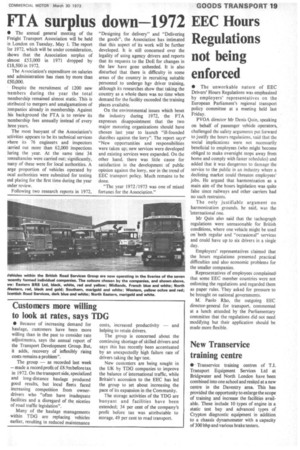EEC Hours Regulations not being enforced
Page 19

If you've noticed an error in this article please click here to report it so we can fix it.
• The unworkable nature of EEC Drivers' Hours Regulations was emphasized by employers' representatives on the European Parliament's regional transport policy committee at a meeting held last Friday.
PVOA director Mr Denis Quin, speaking on behalf of passenger vehicle operators, challenged the safety arguments put lbrward to justify the hours regulations, said that the social implications were not necessarily beneficial to employees (who might become obliged to make overnight stops away from home and comply with faster schedules) and added that it was dangerous to damage the service to the public in an industry where a declining market could threaten employees' jobs. He argued that harmonization as a main aim of the hours legislation was quite false since railways and other carriers had no such restraints.
The only justifiable argument on harmonization grounds, he said, was the International one.
Mr Quin also said that the tachograph regulations were unreasonable for British conditions, where one vehicle might be used on both regular and "occasional" services and could have up to six drivers in a single day.
Employers' representatives claimed that the hours regulations presented practical difficulties and also economic problems for the smaller companies.
Representatives of employees complained. that some EEC member countries were not enforcing the regulations and regarded them as paper rules. They asked for pressure to be brought on national governments.
M. Paolo Rho, the outgoing EEC director-general for transport, commented at a lunch attended by the Parliamentary committee that the regulations did not need modifying but their application should be made more flexible.










































































































